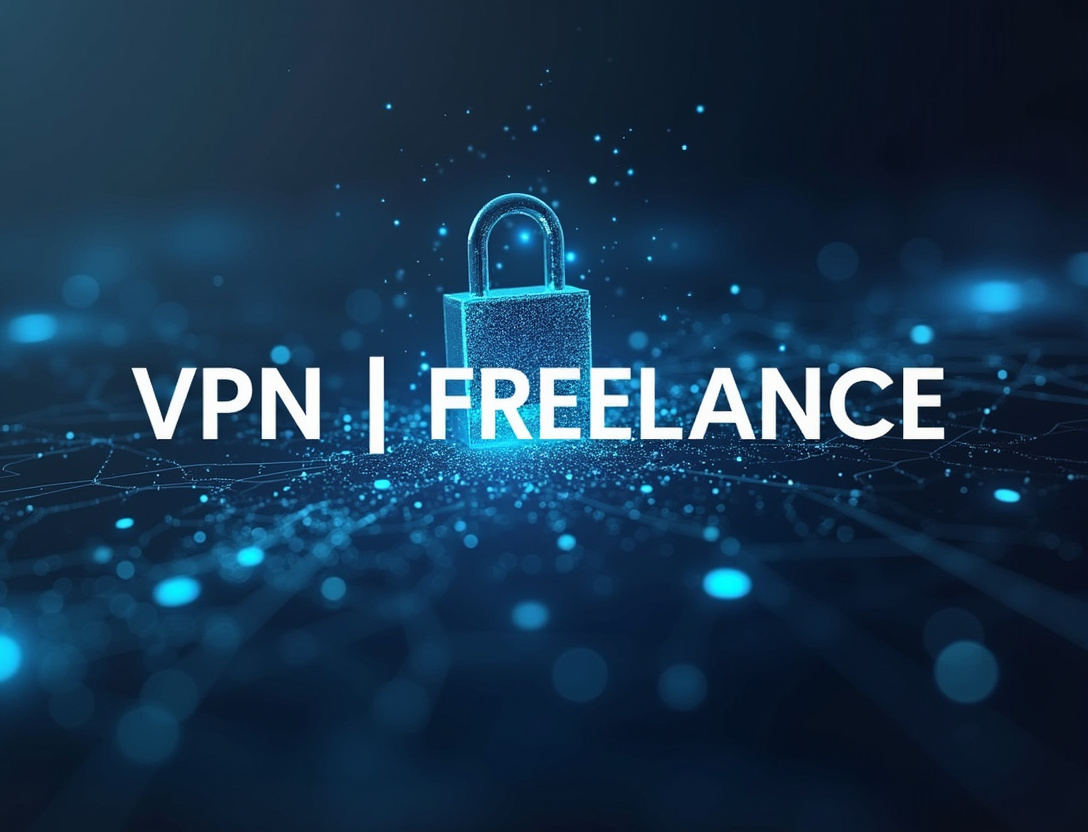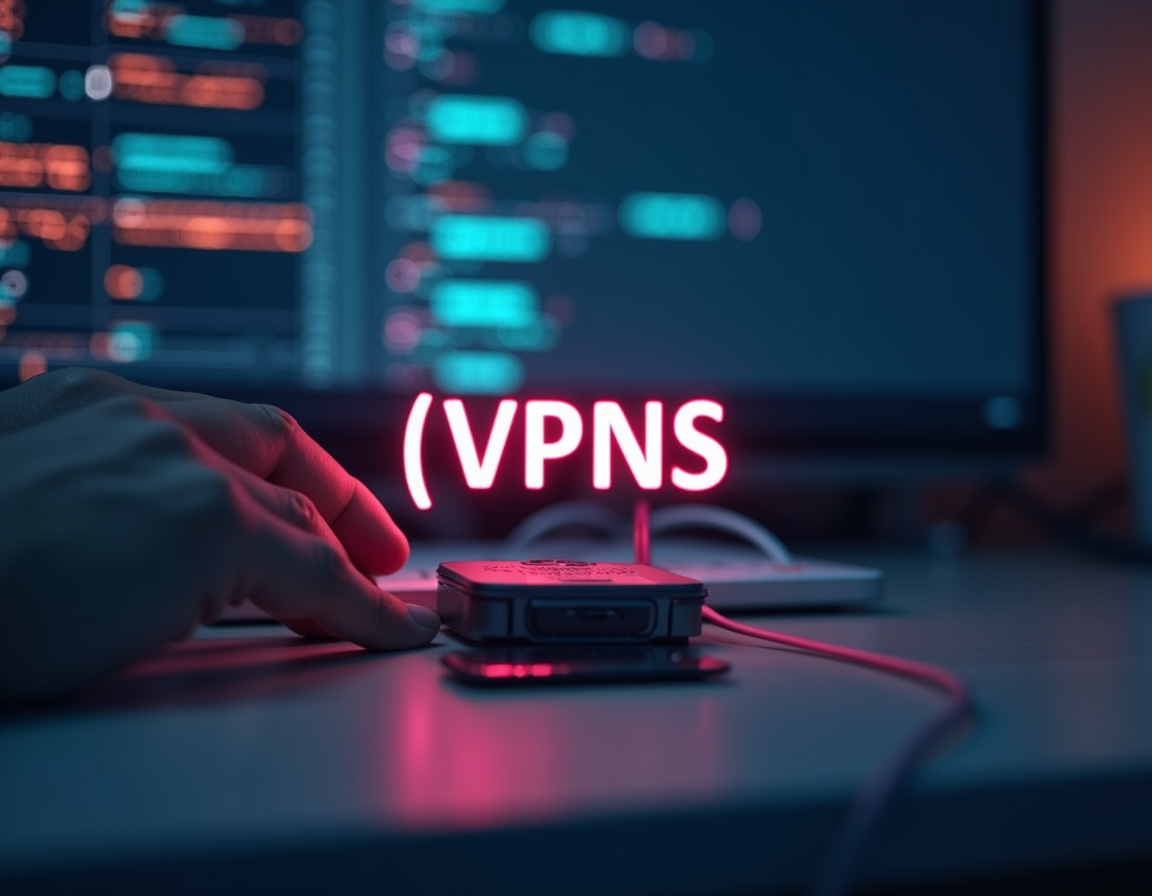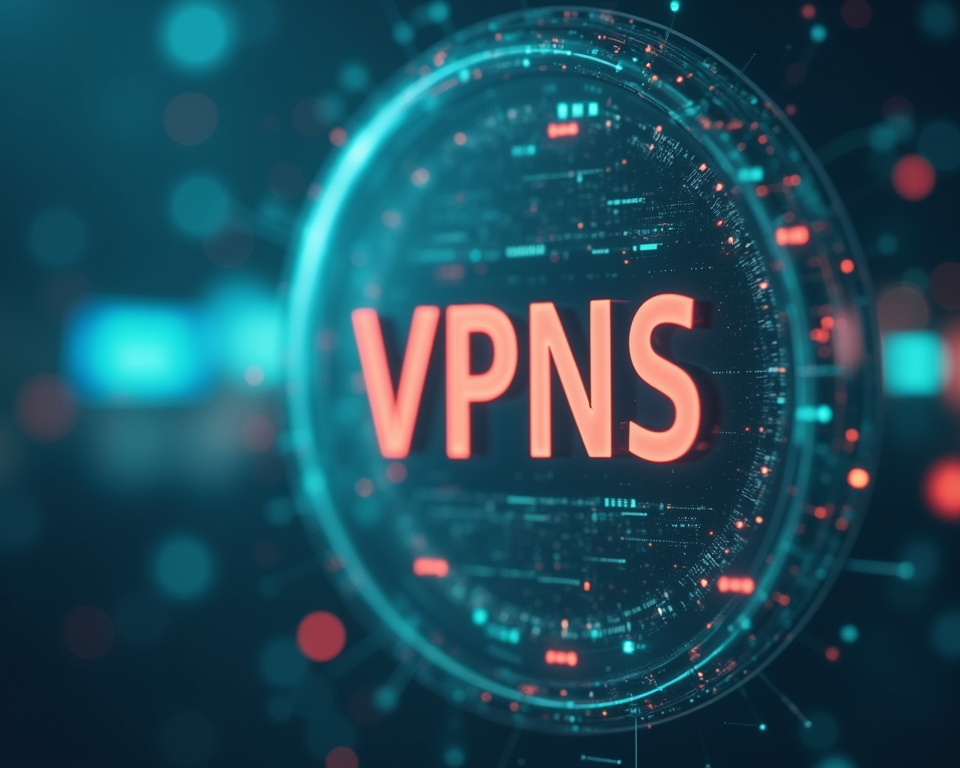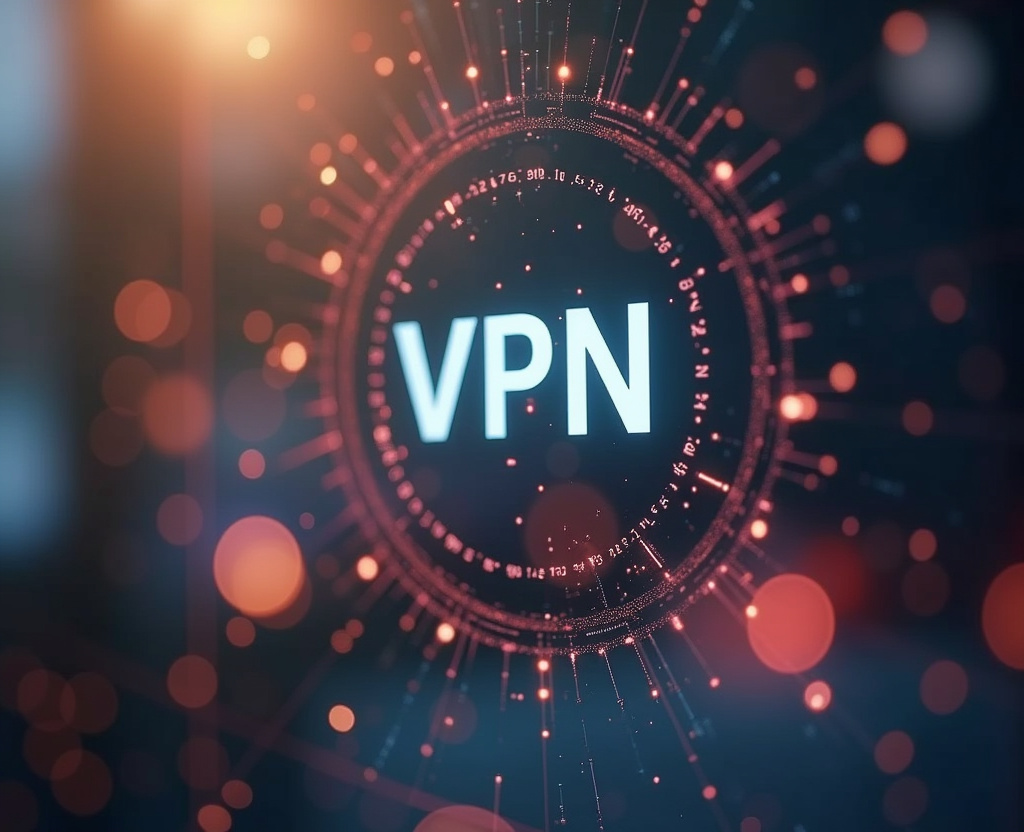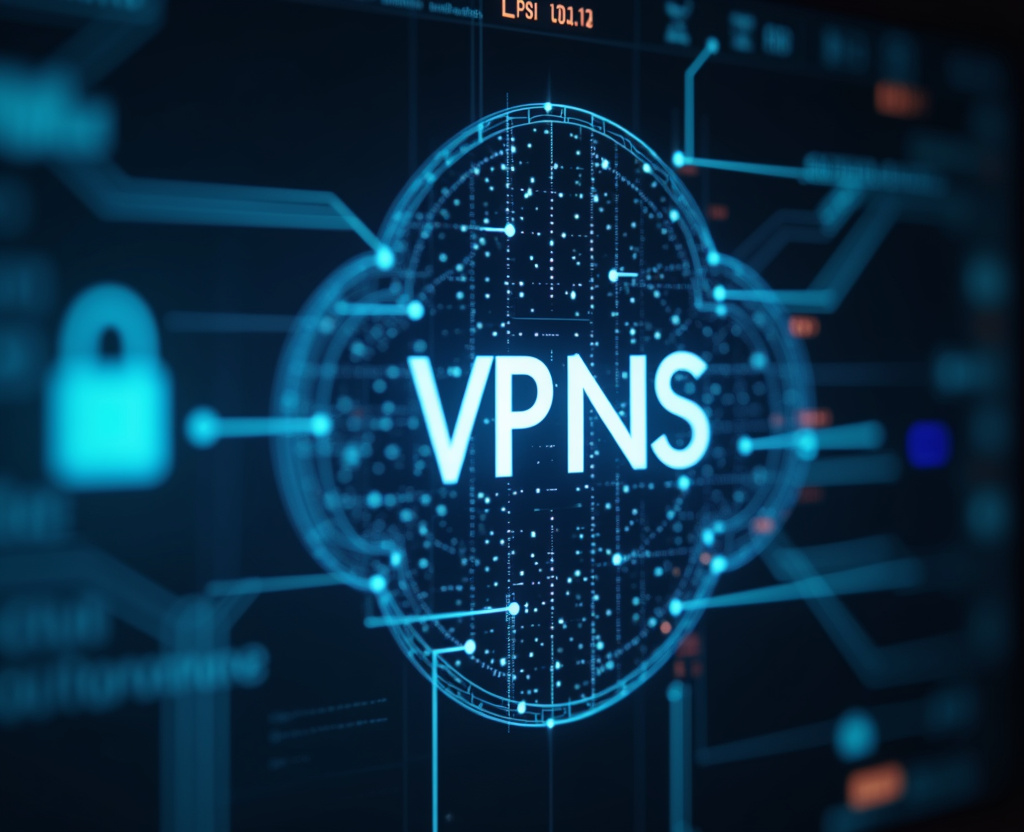Maximize Internet Speed with Top VPNs
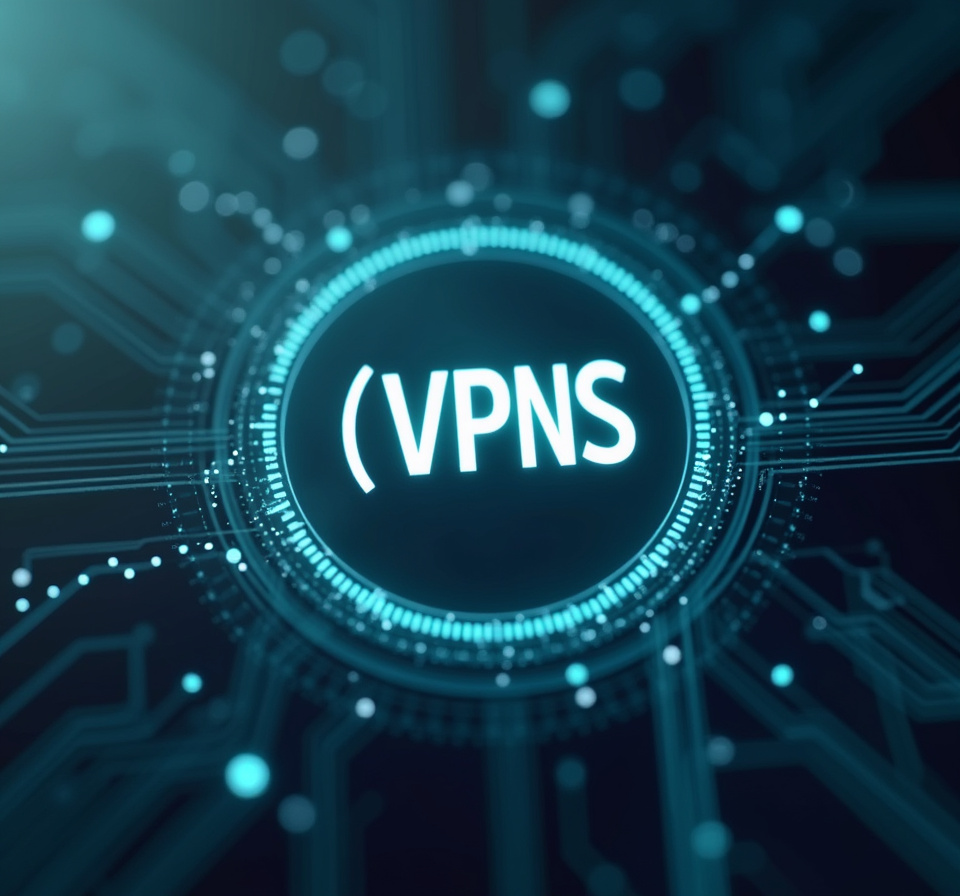
Table of Contents
top VPNs
In today's digital age, a reliable and speedy internet connection is paramount for both personal and professional endeavors. We rely on the internet for everything from streaming our favorite shows and connecting with loved ones to conducting business and accessing essential services. However, slow internet speeds can be a major source of frustration, hindering productivity and diminishing our overall online experience.
While many factors can influence your internet speed, one aspect often overlooked is the potential impact, both positive and negative, of using a Virtual Private Network (VPN). Traditionally, VPNs have been primarily associated with enhancing online privacy and security by encrypting your internet traffic and masking your IP address. However, the perception that all VPNs inherently slow down your connection is a misconception.
Certain , when properly configured and utilized, can actually be optimized to improve, or at least maintain, your existing . This article aims to delve into the complex relationship between VPNs and internet speed, exploring the key factors influencing and providing actionable strategies for your connection. We will unravel the intricacies of VPN technology, dissect the common causes of speed degradation, and empower you with the knowledge to make informed decisions when choosing a VPN.
Our goal is to equip you with the understanding to select a VPN that not only safeguards your online activities but also optimizes your browsing experience, ensuring a seamless and efficient online journey. The common perception that VPNs automatically reduce stems from the inherent processes they employ to secure your data. When you connect to a VPN server, your data undergoes encryption before being transmitted through a secure tunnel to a server located in a geographically diverse location of your choice.
This encryption process, while crucial for protecting your sensitive information from prying eyes like your Internet Service Provider (ISP) or malicious hackers lurking on public Wi-Fi networks, inevitably consumes processing power and introduces a degree of latency. This added latency, the time it takes for data to travel between your device and the destination server, can manifest as a noticeable slowdown in your . The distance between your physical location and the VPN server you are connected to is another critical factor that significantly impacts speed.
The farther the data packets have to travel, the longer it takes, resulting in increased latency and a corresponding reduction in perceived . Think of it like shipping a package – the longer the distance, the longer it takes for the package to reach its destination. Furthermore, network congestion on the VPN server itself or along the broader internet backbone can also contribute to slower speeds.
If a VPN server is overloaded with users or if there are bottlenecks in the network infrastructure, your connection speed will inevitably suffer. However, not all VPNs are created equal, and choosing a that boasts a vast and strategically distributed network of servers can often mitigate these issues effectively. These reputable VPN providers allow you to connect to servers that are closer to your actual location or to the content servers you are trying to access, thereby minimizing latency and maximizing overall .
Finally, the specific VPN protocol being utilized is another key determinant of . While protocols like OpenVPN are renowned for their robust security features, they can sometimes be slower compared to more modern alternatives like WireGuard or IKEv2. WireGuard, in particular, has gained significant traction in recent years due to its lightweight architecture and its demonstrated ability to deliver faster speeds and enhanced when compared to older, more established protocols.
The choice of protocol can significantly influence your browsing experience, making it a crucial factor to consider when selecting a VPN for .
speed boosting
Selecting the right VPN for , rather than inadvertently hindering your connection, requires a strategic approach and careful consideration of several critical factors that go beyond simple marketing claims. It's essential to move beyond superficial promises and delve into the technical aspects that truly influence . Start by prioritizing providers that explicitly emphasize their speed and performance optimization efforts.
These providers often invest significantly in optimizing their server infrastructure, utilizing cutting-edge hardware, and implementing advanced software solutions designed to minimize latency and maximize throughput. These investments directly translate into a faster and more responsive browsing experience for their users. Don't rely solely on the provider's self-proclaimed claims; instead, seek out independent reviews and comparative analyses that rigorously test and under a variety of conditions.
Pay close attention to metrics such as download speed, upload speed, and latency measurements across diverse server locations and internet environments. These metrics provide a more objective and comprehensive understanding of a VPN's true impact on your . Look for comprehensive reviews that simulate real-world usage scenarios, such as streaming high-definition video, downloading large files, and participating in online gaming, to assess the VPN's performance under demanding conditions.
Consider the geographical distribution of the VPN's server network and strategically choose a provider that offers a wide selection of servers in regions that are most relevant to your online activities. For example, if you frequently access content originating from a particular country or region, ensure that the VPN has strategically placed servers in that location. By connecting to a server closer to the content source, you can minimize the distance your data has to travel, thereby reducing latency and improving .
Also, when possible, prioritize VPN providers known to have servers co-located with major Internet Exchange Points (IXPs). This is a critical success factor for . Experiment with different VPN protocols to discover the one that delivers the optimal for your specific environment and usage patterns.
While WireGuard is often lauded as the fastest and most efficient protocol currently available, IKEv2 and other options may perform better depending on your network configuration, operating system, and device capabilities. Most offer the flexibility to easily switch between protocols within their settings, allowing you to experiment and identify the best configuration for your needs. Evaluate the impact of encryption strength on .
While stronger encryption provides enhanced security and protects your data from sophisticated threats, it also demands greater processing power, which can potentially slow down your connection. Consider carefully balancing security requirements with performance considerations by selecting an encryption level that adequately meets your needs without unnecessarily compromising . For routine browsing and streaming, a slightly lower encryption level might suffice, while activities involving sensitive data transmission may warrant a higher level of encryption.
Some offer a feature known as split tunneling, which enables you to selectively route only specific applications or traffic through the VPN tunnel while leaving the remainder of your internet traffic unencrypted and untouched. This can be an effective strategy for your overall connection by reducing the amount of data that requires encryption and routing through the VPN server. For example, you could choose to route only your web browser through the VPN while allowing your online gaming traffic to bypass the VPN, thereby minimizing latency and maximizing gaming performance.
Strictly monitor and quantify your both with and without the VPN enabled to accurately assess its impact on your connection. Utilize online speed test tools, readily available from various providers, to precisely measure download speed, upload speed, and latency. This data-driven approach will provide concrete evidence to help you determine whether the VPN is effectively your connection or whether it is inadvertently causing a performance bottleneck.
Finally, ensure that your underlying internet connection is stable and consistently fast before attempting to troubleshoot potential issues. A fundamentally slow or unstable internet connection will limit the effectiveness of any VPN client, regardless of how optimized it is for speed. Before blaming the VPN, verify your connection speed with your ISP and rule out any underlying network problems.
Experiment with connecting to a variety of different VPN servers to identify the ones that provide the best and most consistent . Certain servers may experience congestion or technical difficulties, which can negatively impact your .
VPN performance
Understanding the technical underpinnings of is crucial for truly optimizing your connection and achieving maximum attainable . It's not enough to simply select a VPN based on marketing promises; a deeper understanding of how different technologies and configurations affect speed is essential. At the heart of VPN performance lie the VPN protocols.
These protocols are essentially the set of rules and procedures that govern how data is encrypted, encapsulated, and transmitted between your device and the VPN server. Common and widely used protocols include OpenVPN, IKEv2, L2TP/IPsec, and the increasingly popular WireGuard. Each protocol possesses its own unique strengths and weaknesses in terms of security, speed, compatibility across different operating systems and devices, and overall resource consumption.
OpenVPN, for instance, is a highly regarded and extensively deployed protocol known for its robust security features, excellent flexibility, and extensive configurability. However, this strong security comes at a cost, as OpenVPN can sometimes be comparatively slower than other protocols due to its computationally intensive encryption algorithms and more complex handshake processes. While offering excellent security, OpenVPN might not be the ideal choice for users prioritizing maximum .
IKEv2, or Internet Key Exchange version 2, is another secure and reliable VPN protocol frequently favoured for its inherent stability and its ability to quickly re-establish connections after temporary interruptions, such as brief network outages or switching between Wi-Fi networks and cellular data. This makes IKEv2 particularly well-suited for mobile devices and users who are constantly on the move. While generally faster than OpenVPN, IKEv2's performance can still be affected by the encryption algorithms used and the distance to the VPN server.
L2TP/IPsec, or Layer 2 Tunneling Protocol combined with IPsec, represents an older protocol that is often deployed as a fallback option when other, more modern protocols are unavailable or encounter compatibility issues. However, it's generally considered to be less secure than both OpenVPN and IKEv2, and it typically offers lower in terms of . Its use is discouraged due to its known vulnerabilities and less efficient data handling.
WireGuard is a relatively new VPN protocol that has rapidly gained immense popularity and widespread adoption in recent years, driven by its focus on simplicity, speed, and exceptionally efficient code. WireGuard's streamlined design, utilizing modern encryption algorithms and a lean codebase, results in significantly reduced overhead and dramatically improved compared to older protocols. WireGuard is widely considered the leading protocol when maximizing is paramount.
The encryption algorithms employed by each protocol directly influence . Stronger encryption algorithms, like AES-256, offer superior security but require more processing power, potentially leading to slower speeds. Weaker encryption algorithms, like AES-128, are faster but provide a lower level of security.
The choice of encryption algorithm represents a trade-off between security and speed, and the optimal choice depends on your individual needs and risk tolerance. Server hardware and infrastructure also play a crucial role in determining . VPN providers that invest in high-performance servers with powerful processors, ample RAM, and fast network connections are better equipped to handle heavy traffic loads and deliver consistently fast .
The location and proximity of the VPN server to your physical location and the content you are accessing significantly affect latency and overall . Connecting to a server closer
internet speed
Beyond the VPN itself, several factors related to your own network and device can significantly impact the achievable when using a VPN. Optimizing these elements is crucial to maximizing and ensuring a smooth online experience. Your underlying internet connection speed is the foundation upon which VPN performance is built.
If your base internet connection is already slow, a VPN, regardless of its optimization, cannot magically conjure up extra bandwidth. Understand the limits of your ISP plan and consider upgrading to a faster tier if possible. Run speed tests regularly, both with and without the VPN, to understand the true impact of the VPN on your connection.
Your Wi-Fi connection can be a significant bottleneck, especially if you are using an older router or experiencing interference. Ensure your router supports modern Wi-Fi standards like 802.11ac or 802.11ax (Wi-Fi 6), which offer faster speeds and improved range. Position your router in a central location, away from walls and electronic devices that can cause interference.
Consider upgrading to a mesh Wi-Fi system for larger homes to eliminate dead zones and ensure consistent coverage. A wired Ethernet connection will always provide a more stable and faster connection than Wi-Fi, eliminating potential interference and reducing latency. If possible, connect your device directly to your router via Ethernet cable for the best possible , especially for demanding tasks like online gaming or video conferencing.
The device you are using to connect to the VPN can also impact . Older devices with slower processors and limited RAM may struggle to handle the encryption and decryption processes required by the VPN, resulting in reduced speeds. Close unnecessary applications and browser tabs to free up resources and improve performance.
Update your device's operating system and drivers to ensure optimal compatibility and performance. Your browser settings and extensions can inadvertently affect . Clear your browser cache and cookies regularly to remove accumulated data that can slow down browsing.
Disable or remove unnecessary browser extensions, as they can consume resources and interfere with VPN traffic. Consider using a lightweight browser designed for speed and efficiency. Your firewall and antivirus software can sometimes interfere with VPN connections, blocking traffic or slowing down .
Configure your firewall and antivirus software to allow VPN traffic and exclude the VPN application from scanning. Temporarily disable your firewall and antivirus software to test if they are causing performance issues, but remember to re-enable them immediately afterward. Consider using a more lightweight and efficient security solution that minimizes impact on .
DNS (Domain Name System) settings can also affect browsing speed. By default, your ISP assigns DNS servers, but these may not always be the fastest or most reliable. Consider switching to public DNS servers like Google DNS (8.8.8.8 and 8.8.4.4) or Cloudflare DNS (1.1.1.1 and 1.0.0.1), which are often faster and more secure.
Configure your VPN client to use custom DNS servers to prevent DNS leaks and ensure privacy. Split tunneling, as mentioned earlier, allows you to selectively route traffic through the VPN, improving for non-sensitive activities. Configure split tunneling to only route traffic that requires encryption and security through the VPN, while allowing other traffic to bypass the VPN and use your direct internet connection.
Choose the most appropriate VPN server location based on your needs. While connecting to a server in a distant location can provide access to geo-restricted content, it will also increase latency and reduce . Connect to a server that is geographically closer to your location or the content you are accessing for optimal .
The VPN protocol you choose also has an impact. WireGuard is generally the fastest, but IKEv2 and OpenVPN also offer good performance depending on your network setup.
internet speed
In conclusion, maximizing your while using a VPN is not an impossible feat, but rather a carefully orchestrated process that involves understanding the interplay between various technical factors and making informed choices. While VPNs were once perceived as inherent speed inhibitors, the reality is far more nuanced. By selecting the that prioritize performance, optimizing your network configuration, and remaining vigilant about potential bottlenecks, you can effectively mitigate speed degradation and even experience improvements in certain scenarios.
The choice of VPN provider is paramount. Opt for providers renowned for their robust infrastructure, strategically located servers, and commitment to utilizing cutting-edge technologies like WireGuard. Look for independent reviews and performance tests that validate their speed claims and provide objective data on download speeds, upload speeds, and latency across different server locations.
Delve into the technical specifications of the VPN protocols offered. Understand the trade-offs between security and speed and select a protocol that aligns with your specific needs and priorities. While OpenVPN offers robust security, WireGuard often provides superior with its lightweight architecture and modern encryption algorithms.
Experiment with different protocols to find the optimal balance for your network conditions and usage patterns. Optimize your local network configuration to eliminate potential bottlenecks. Ensure your Wi-Fi router supports modern standards, position it for optimal coverage, and consider a wired Ethernet connection for demanding tasks.
Keep your device's operating system and drivers up-to-date, and disable unnecessary browser extensions and background applications that can consume resources. Configure your firewall and antivirus software to allow VPN traffic and prevent interference. Embrace split tunneling to selectively route traffic through the VPN, improving for non-sensitive activities and minimizing the overhead of encryption.
Monitor your regularly, both with and without the VPN enabled, to quantify its true impact and identify potential performance issues. Use online speed test tools to measure download speed, upload speed, and latency, and track these metrics over time to identify trends and anomalies. Consider using a VPN accelerator, a software or hardware solution that is specifically designed to improve VPN performance by optimizing network traffic and reducing latency.
However, research these solutions carefully to ensure they are compatible with your VPN and do not compromise your security or privacy. Remember that VPN performance is an ongoing process, not a one-time fix. The internet is a dynamic environment, and factors such as network congestion and server load can fluctuate over time.
Be prepared to adjust your settings and experiment with different configurations to maintain optimal . Stay informed about the latest advancements in VPN technology and best practices for optimizing performance. Read industry news, follow expert blogs, and participate in online forums to stay up-to-date on the latest trends and tips.
By taking a proactive approach to VPN optimization, you can unlock the full potential of your internet connection, enjoying both enhanced security and blazing-fast speeds. Ultimately, the goal is to find a VPN that seamlessly integrates into your online life, providing a secure and private browsing experience without sacrificing . With careful research, strategic configuration, and continuous monitoring, you can achieve this balance and enjoy the best of both worlds.
The right should become an asset, not a hindrance, empowering you to navigate the internet with confidence and speed.
Stay Updated
Get the latest VPN news, tips, and exclusive deals to your inbox.
